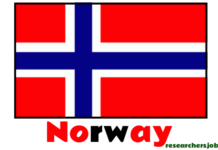Evolve Fellowship Programme: The Evolve Fellowship Programme is a groundbreaking initiative aimed at exploring the mysteries of life’s origins and evolution, delving into complex systems and their impact on the development of life. Through a consortium of leading research institutes, this programme offers a unique opportunity for researchers to contribute to the understanding of life on Earth and beyond.
Evolve Fellowship Programme: Advancing Research in the Origin and Evolution of Life
Designation: Evolve Research Fellow
Research Area: Evolution of Multicellularity, Habitable Exoplanets, Synthetic Environments for Archaea
| Research Project Title |
|---|
| A New Light on Carbohydrate Modification |
| A Switchable Peptide Fibril Esterase Enzyme Mimic |
| Adaptive Behaviour of Supramolecular Structures Scrutinised at the Single-Particle Level |
| Bioinspired Processing of Coacervates Using Microfluidic Technology |
| Development of Synthetic Materials-Based Culture Environments for Archaea |
| Evolution of Multicellularity |
| Evolution of Self-Replicating Molecules |
| Expanding Prebiotic Chemistry Through Unconventional Reactivity in Oil Droplets |
| Integrating Systems Chemistry and Evolutionary Perspectives on the Origin of Life |
| Origin and Evolution of the Genetic Code – A Theoretical Framework |
| Placing the Habitability of and Biosignatures for Exoplanets in Context |
| Reconstructing Ancestral Cofactor-Dependent Enzymes |
| Single-Molecule Characterization of Transmembrane Transport Proteins Using FRET |
| Single-Molecule Characterization of Transmembrane Transport Proteins Using Optical Tweezers |
| STED Super-Resolution Microscopy of Cell Division to Reveal Early Cellular Mechanisms |
| The Evolutionary Consequences of Isolation |
| The Long-Term Evolution of Habitable Zones Across Stellar Mass Composition |
| The Origin of Homochirality |
| The Role of Metabolism in ‘Stirring Up’ the Cellular Cytoplasm |
| The Role of RNA-Protein Interactions in Biological Condensates |
Location: The Netherlands (University of Groningen, Leiden University)
Eligibility/Qualification:
- Master’s or Ph.D. in Biology, Astronomy, Physics, Chemistry, or related fields
- Strong background in research related to the origin and evolution of life
- Demonstrated experience in interdisciplinary projects
- Excellent written and oral communication skills in English
- You qualify as a PhD candidate in the Netherlands, meaning that you are in the possession of, or about to obtain, an internationally recognized Master’s degree in the relevant field (equivalent to a Dutch Master’s degree). All European MSc degrees are accepted.
- You have an educational background in one or multiple fields relevant to the Evolve Doctoral Programme, such as (bio)chemistry, (bio)physics, molecular biology, computational science, systems biology, evolutionary biology, ecology, astrophysics, geoscience or a related field.
- To fulfil the eligibility requirements, you must not already be in possession of a doctoral degree.
- To comply with EU funding rules, you will not have resided in the Netherlands for more than 12 months during the 3 years prior to 20 October 2024.
- You are proficient in the English language at an academic level.
Note: You do not need to come from an EU member state. Candidates from all over the world can apply.
Job Description:
- Collaborate with supervisors and researchers in cutting-edge projects focused on the origin of life
- Contribute to complex systems research and the evolution of multicellularity
- Study the habitability of exoplanets and biosignatures for potential extraterrestrial life
- Develop synthetic materials-based culture environments for Archaea
- Publish findings in top-tier scientific journals and present research at international conferences
You will be offered below salary for your years of PhD research according to the Collective Employment Agreement (CAO-UNL) of the Dutch universities, the UFO-profile PhD candidates applies. In addition to the primary salary the University offers 8% holiday allowance and an end-of-year bonus of 8.3%:
- year 1: € 2,872 gross per month for a full-time position
- year 2: € 3,345 gross per month for a full-time position
- year 3: € 3,502 gross per month for a full-time position
- year 4: € 3,670 gross per month for a full-time position.
How to Apply:
- Visit the Evolve Fellowship Programme page on our website.
- Review the research projects and participating institutes.
- Prepare a CV, cover letter, and a summary of research interests.
- Submit your application online before the deadline.
Last Date for Apply: 20 October 2024
Evaluation, Selection Procedure and Timeline
| Publication of the vacancies | 20 September 2024 |
| Deadline for application | 20 October 2024, 23:59 (CEST) |
| Evaluation and decision on eligibility (per e-mail) | October 2024 |
| Invitation to Web-based interview, or rejection (per e-mail) | October/November 2024 |
| Online interviews | November 2024 |
| Notification on evaluation result | November 2024 |
| Onsite selection days | January 2025 |
| Evolve Fellowship Programme – Participating Institutes |
|---|
| 1. Groningen Biomolecular Sciences & Biotechnology Institute |
| 2. Groningen Institute for Evolutionary Life Sciences |
| 3. Kapteyn Astronomical Institute |
| 4. Leiden Institute of Chemistry |
| 5. Stratingh Institute for Chemistry |
| 6. Zernike Institute for Advanced Materials |
This interactive programme offers a unique opportunity to work closely with esteemed supervisors and engage in cutting-edge research that shapes our understanding of life in the universe. Apply now and be part of the journey to unravel the mysteries of life’s origins and evolution.








